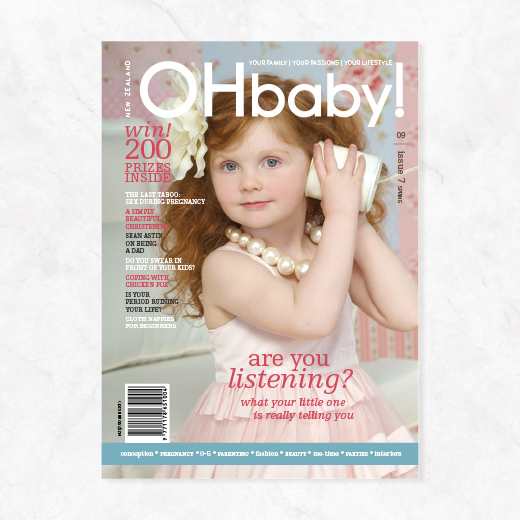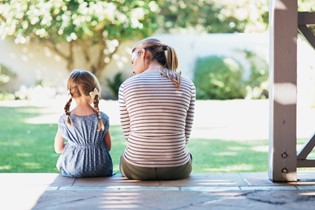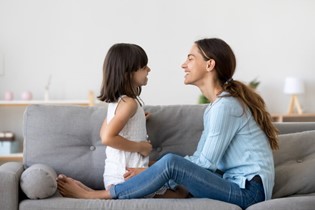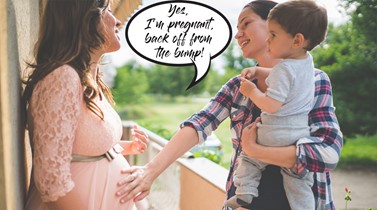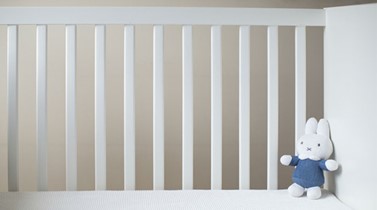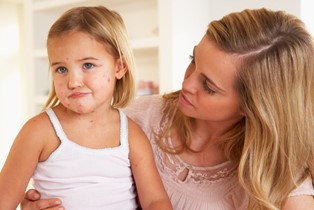Parenting through separation
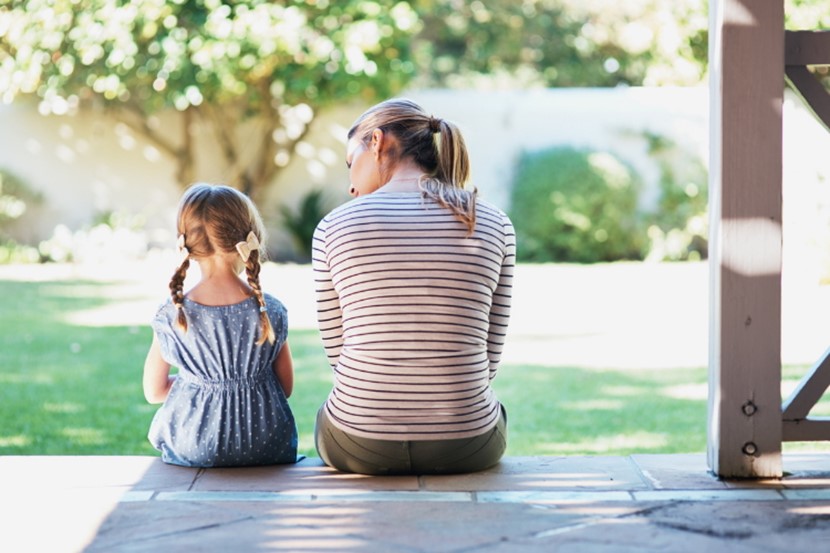
When parents separate, it can be especially difficult for children. Psychologist Pauline Ogilvy explains how communication can help to make the transition as stress-free as possible.
Separation is a turbulent time for adults and children. Not only are there the emotional ties, grief, and loss to come to terms with regarding the ending of the marriage, but also, more often than not you also have to negotiate the splitting of assets, the home, and finances. Furthermore, a renegotiation process begins in relation to all the friends and family you had together, to redetermine the place they now hold in your life. Due to an accumulation of all these pressures, stress is enormous. However, for some, the contrary occurs and separation can be a great relief, particularly if the relationship was abusive. This can be true for the children involved too, as now perhaps the pervasive atmosphere of fear, dread, unpredictability, and needing to walk on eggshells at home is over.
More commonly, though, the stress of the situation erodes energy levels and your physical health, and negatively impacts on your emotions and moods. The ability to be a calm, positive, consistent parent becomes so much harder to achieve. For parents, it is this all-consuming nature of separation that means many children are often less well-monitored and nurtured, even though their lives have undergone tremendous change too. Less-than-focused parenting practices around this time are not by choice, but simply occur due to the strain experienced in parents' lives. Guilt around this can be another pressure for the parent to bear. It is at this time that extended family, close friends, caregivers, and teachers can be of real comfort to young children as they have more available emotional resources compared with their parents. So, as a parent, allow this to occur and don't interpret this as something personally against you.
Not surprisingly, children are all different in how they respond. How their parents behave, the child's personality, gender and age, and the support parents give, all have an impact on their well-being. Children may be seen as resilient and perhaps not show any immediate signs of stress. However, this still is a significant change in their lives. The absence of one parent from home can be rather difficult for them to accept, and anger, clinginess, whinging, or pining may occur around the typical times the other parent would usually be involved, such as meals, bath time, or bedtime. Others may not appear to show any signs or simply regress with development; for example, needing to use nappies again, using baby talk, and waking through the night.
Children need to be heard and comforted. With their limited vocabulary, it may be difficult for them to express how they feel. Their changes in mood, poor behaviour, clinginess, or regression may very well be their way of expressing their anger, sadness worries, and distress. Older children may ask for, or welcome, a simple age-appropriate explanation, for example, "Mummy and Daddy cannot get on with one another and live in the same house, so Daddy is now living at the other home. We both still love you very much, and you will see Daddy every Tuesday and Thursday when he picks you up from kindergarten, and you can sleep at your other home in the weekend."
One of the most damaging aspects for children is hostility and conflict being played out in front of them, or via them. Yes, this too does happen, when parents use their children as pawns in their conflict with the other parent to express their anger or to upset the other parent, and thereby communicate hostile messages or put-downs. Due to the stress this creates for children, they are then less able to focus on learning, having fun, and relaxing, and may worry about their parents or carry feelings of guilt and anger.
This also puts children in a loyalty bind, by having to take sides or bearing the brunt of anger that is directed at the other parent. And because they are the messengers, they receive the emotional baggage. Children need to be able to freely love both parents, and in an atmosphere of animosity, they may be too scared to even mention their name, for fear of getting an earful on how bad the other parent is. They may hesitate, for fear of being quizzed about the other parent's personal life or care of them. They may omit to tell of the presents they got, for fear of getting to hear about how s/he should have spent the money on other things. Children can consequently become hyper-vigilant about what they say in front of each parent, losing spontaneity and freedom to blurt out what comes to mind. This anxiety-inducing environment impacts on their development, removing the focus from play, learning, and fun, to worries and avoidance.
For the parents in the caregiving role, the realisation may be that everything is on their shoulders, with no backup support immediately at hand. This can be too much at times, and of course it is natural to cry and be upset. If children witness this too often, they may become concerned for the parent and worry. This is unhelpful for children as they need their parents to be just that - parents, with the ability to care and look out for them, not falling apart. Do seek help should you have an ongoing challenge with moving forward, harbour immense angry feelings and/or feeling continually stressed or low with no signs of it easing over time.
Compartmentalising of the issues can be a helpful tool for parents struggling to contain their feelings towards the other parents in front of the children. Children need to be able to love both their parents, and being exposed to put-downs or derogatory comments will cause a great internal dilemma for them.
Find healthy outlets to work through the grief, anger, turmoil, so as to not drag children through this. Communicate with the other parent on a business-relationship level. Remove personal questions, and have boundaries to your communication content by focusing on parenting only. Don't drag up old issues; focus on the here and now to make workable arrangements. A helpful tool available from the Ministry of Justice is a booklet called the Parenting Plan (www.justice.govt.nz/family); this is a very thorough planning guide that helps parents think through the issues.
What do our infant toddlers and preschoolers need from us during this time? Due to their young age, they don't understand much of the goings-on. However, they are attuned to the atmosphere, and are aware of the actual changes in their care. Young children need routines to be kept as consistent as possible and parental separation brings changes to this. Space out changes; for example, don't move house, preschool, play group, and suburb ll in one go. Keep routines as similar as possible in both households as this assists children to feel secure.
Contact time between parents needs to be worked out carefully. If both parents are to have a substantive role, visits need to be frequent, though not necessarily long in duration. The types of activities that are meaningful to do with children are the routine aspects of care - bathing, feeding, reading, playing, putting to bed, walks to feed the ducks, blowing bubbles, etc. Overnight visits are okay for young ones if they are used to being cared for by both parents and routines can be kept.
Changeover from one home to the other can be stressful, and clinginess and tears are not unusual. This is all the more reason for parents to act politely towards one another and to be patient and calm during this time, while focusing on their child's needs. Try not to allow changeovers to become drawn-out, emotionally-charged times. Set a pattern of greeting and parting so your child can become familiar with these. If a child was very upset at changeover, yet calms down a moment later, let the other departing parent know about it so they don't worry (texting can come in very handy in this instance).
Dropping off may work better for children, rather than being picked up from their primary home. Arriving with one parent at the other home can be anticipated by the child and provides them with time to prepare for the change. Allow comfort toys to travel between the homes and cooperate around these with the other parent, for your child's sake. Share parenting routines such as bedtimes, any dietary or health requirements, and particular likes and dislikes that will support your child's wellbeing, for example: "Jacob likes to have a sipper bottle of water next to his bed," or "If Amy wakes in the night, a backrub usually sends her go back to sleep."
Putting your children's needs above your own emotional state by communicating well with the other parent will allow you and the children to move on and to build up a cooperative relationship around parenting together, which is in everyone's best interests. After all, though you may be separated, you will be parents forever. Though you may want him/her out of your life, the children did not opt for this, and they have a right to have substantial and meaningful time with both parents (except in situations where one parent abandons the family, or risks of neglect or abuse arise).
It is my professional opinion, having worked with many separated parents, that co-parenting is not easy to do and is fraught with frustration as parenting is such a personal thing and differences are inevitable. It is helpful to keep in mind to "not sweat the small stuff" and only make issue of the differences that have significant impact in your children's lives.
Further reading:
Teach Yourself Single Parenting (Teach Yourself/Hachette $34.99)
A Day with Dad, by Bo R Holmberg (Walker Books $29.99)
Every Second Friday, by Kiri Lightfoot and Ben Galbraith (Hodder Children’s $34.99)
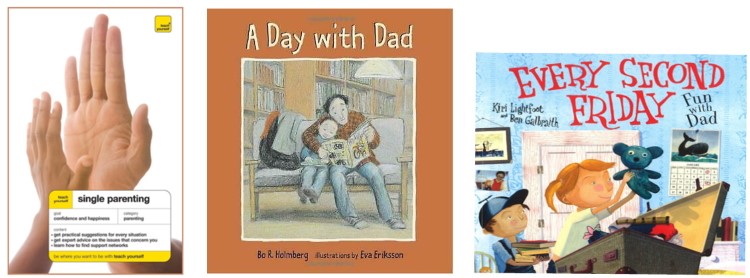
Pauline Ogilvy is a psychologist. She helps with a wide variety of infant to teen issues, parental difficulties, stress, anxiety and depression.

AS FEATURED IN ISSUE 7 OF OHbaby! MAGAZINE. CHECK OUT OTHER ARTICLES IN THIS ISSUE BELOW
